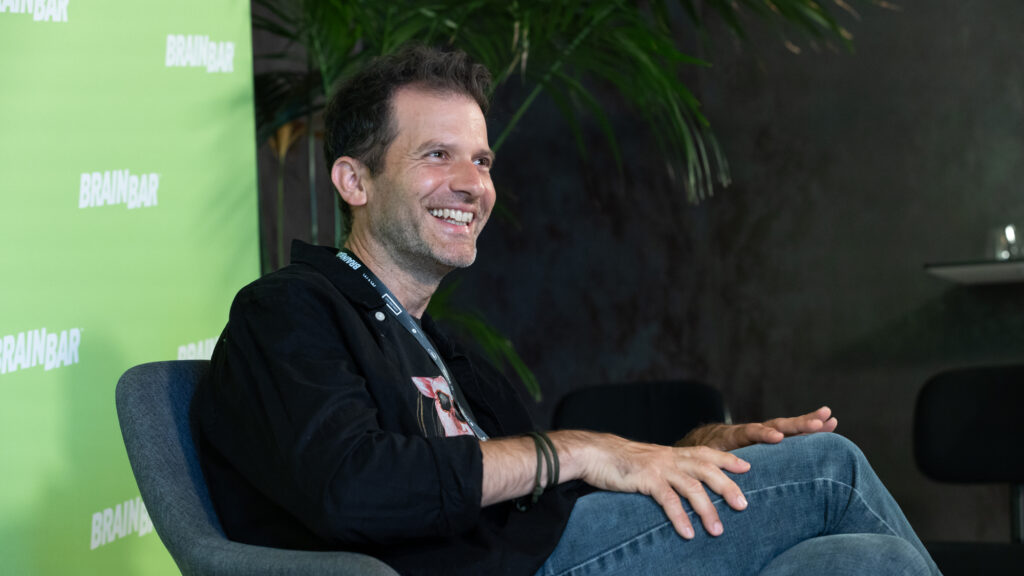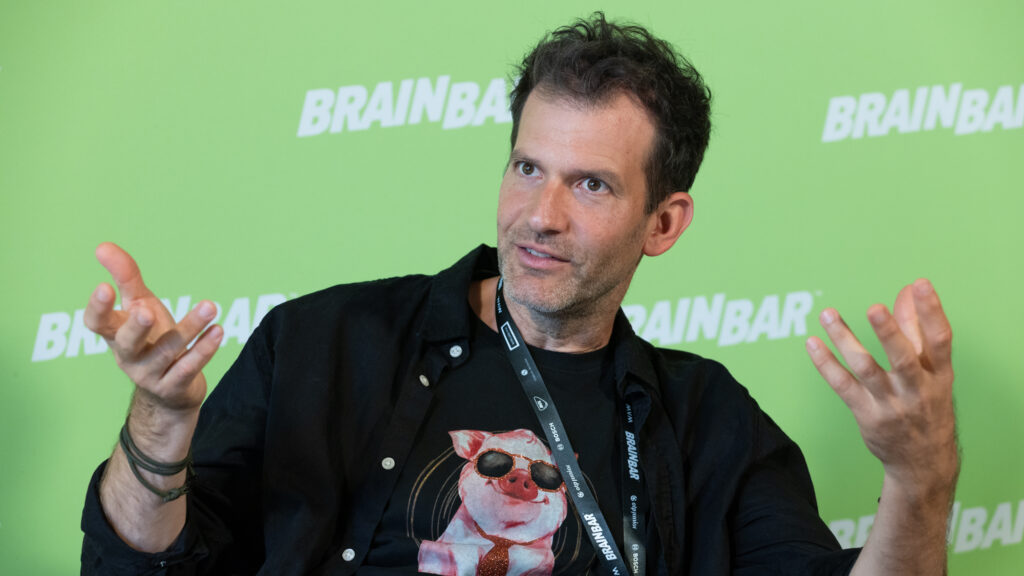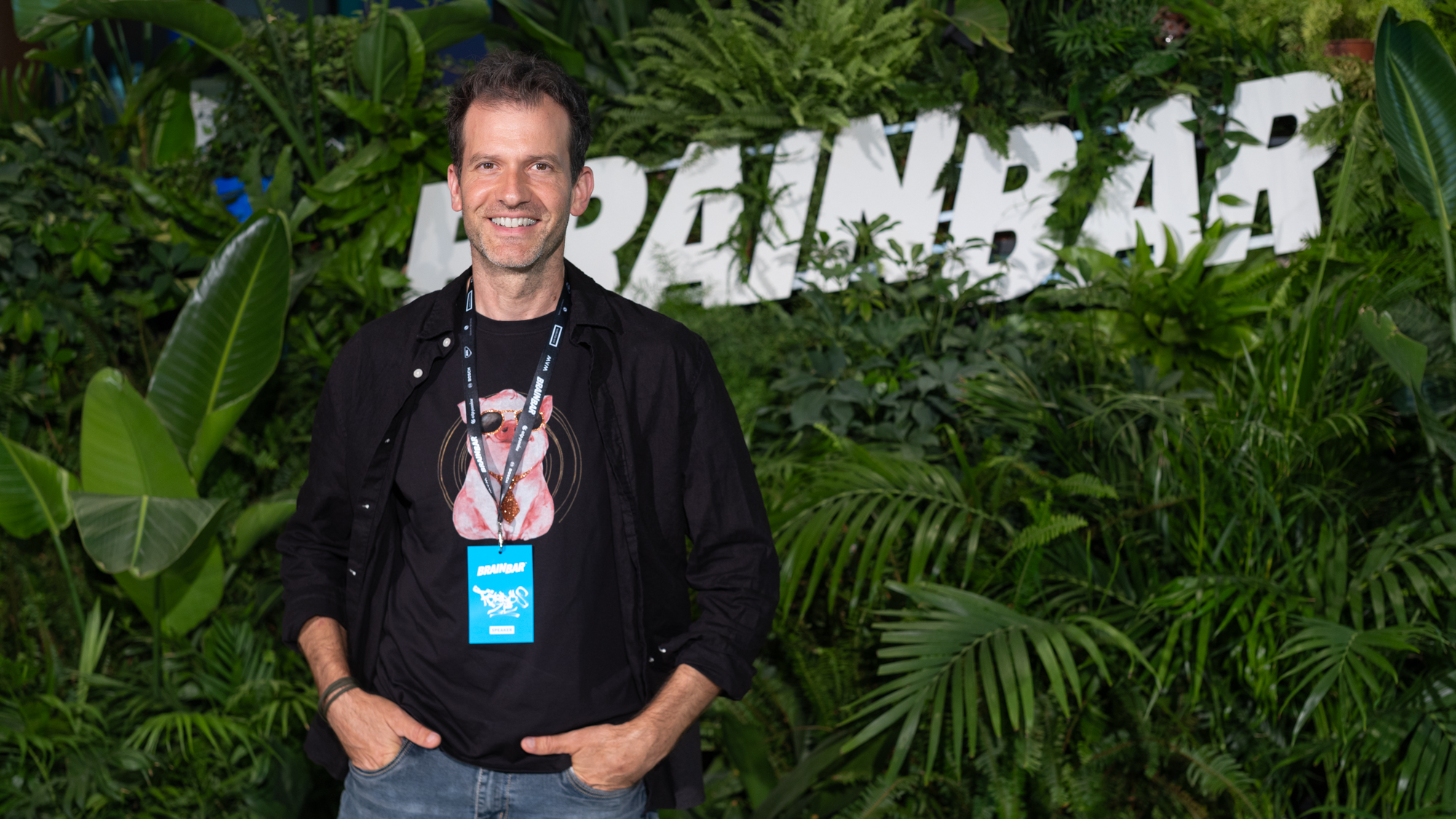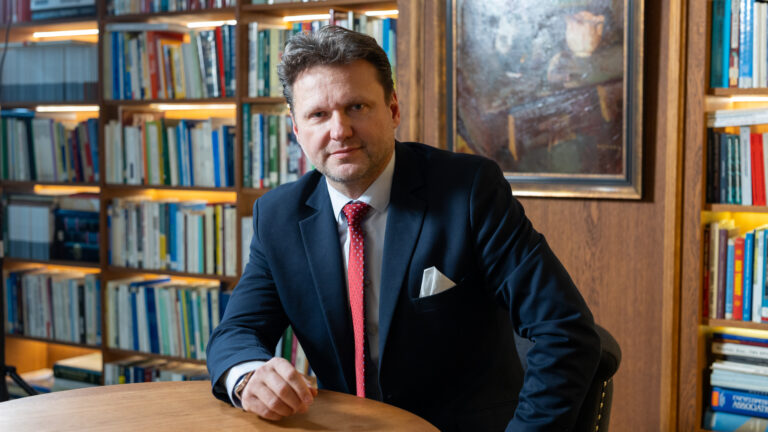During Brain Bar 2025, Hungarian Conservative had a chance to sit down with Zé Fördős, one of Hungary’s most well-known culinary influencers, founder and face of Street Kitchen. He first gained attention with his cooking videos, later became a recognized TV host, and eventually revolutionized the world of online cooking content with a business built around his own brand.
***
When someone sets out as an entrepreneur, a content creator, or even just a student fresh out of school, what does it really mean to take those first steps?
The first big decision is whether to try building your own business or to follow a career path as an employee. Neither is better than the other. You can succeed and make money both ways. The question is: where do you feel more comfortable? Do you want to live with the weight of your own decisions, or do you prefer to grow within an established system and contribute there?
In my case, entrepreneurship was the natural choice. I grew up watching my grandmother and father run their own hospitality businesses, taking full responsibility and risk. That became a model for me. I also realized early on that I’m someone who thrives on risk, so for me, entrepreneurship felt inevitable.
That’s what I’d say to young people: look inside yourself and ask, are you willing to put yourself in a position where every decision depends on you? That courage is essential at the start.

You’re also known for paragliding. Which came first—entrepreneurship or extreme sports? Do you think the two are connected?
Paragliding came first. I started at 19, and next year marks 30 years in the sport. Around the same time, I was helping in my father’s catering business, but I only really saw myself as an entrepreneur a few years later. So the two journeys began almost in parallel.
The two mindsets are very similar. Both require setting goals, constantly reassessing, reacting quickly to unexpected situations, and managing risk. Paragliding taught me a lot about resilience and responsibility, and those lessons carried over into business. Honestly, I can’t separate them anymore; they’ve shaped each other.
So sports actually reinforced your entrepreneurial mindset?
Absolutely. I wouldn’t necessarily tell every young person to take up paragliding, but sports, especially competitive or extreme sports, shape your character in ways that are invaluable for entrepreneurship. They force you to take responsibility for your own decisions.
‘Sports…shape your character in ways that are invaluable for entrepreneurship’
And interestingly, if you look at the paragliding community, you’ll find more entrepreneurs and risk-takers than in the general population. Maybe you need that mindset to fly, or maybe successful entrepreneurs have the means to take it up. Probably both.
Today, you’re known for Street Kitchen, but you’ve said you had less successful ventures before. What role did persistence play in getting here?
To be honest, I owe my current success to failing in 2008. The financial crisis hit our catering company hard, and it collapsed, debts, liquidation, the works. We had 15 employees, unpaid rent, and tax debts. It was brutal.
After that, I spent two years working as an employee simply to survive. But even then, I considered myself an entrepreneur waiting for the next opportunity. When my brother, father, and I launched Street Kitchen, we were determined to rebuild.
Because I’d already hit rock bottom, I had nothing to lose. That gave me the courage to stand in front of the camera for our first cooking video. From there, it was luck, hard work, and persistence, but also the lessons learned from failure. I didn’t start Street Kitchen from zero. I already had a decade of entrepreneurial experience, including mistakes I knew not to repeat.
There’s a saying: once you’ve hit rock bottom, the only way is up. Did you feel that way?
Exactly. In a strange way, total failure can be liberating. Many entrepreneurs get stuck in businesses that aren’t thriving but still provide just enough to survive, so they can’t let go. But when you lose everything, you get to hit reset. That was me in 2008. It allowed me to start over with a clean slate.

Do you think starting a business today is easier or harder than when you began?
Neither easier nor harder, just different. For me, entrepreneurship is like scattering seeds in a forest. Out of a thousand, maybe one grows into a tree. Conditions change, climate, soil, and rainfall, but the struggle is always there.
‘When you lose everything, you get to hit reset. That was me in 2008’
Technology doesn’t change that, because it’s available to everyone. The real challenge for young entrepreneurs is understanding the environment they’re in and learning the rules that govern growth. That’s always been the case, whether in 1920, after the regime change, or today.
When we launched Street Kitchen, YouTube was the new opportunity. Today, that same move wouldn’t work because everyone’s uploading videos. Now maybe AI is the equivalent. There will always be something, it’s just that you only recognize it in hindsight.
Do you have a go-to comfort food you make when you’re in a rush?
Yes, Asian fried rice. It’s quick, adaptable, and I always have the basics at home: rice, eggs, soy sauce. If I have just 15 minutes before heading out, that’s what I’ll cook. Not necessarily my favourite dish, but looking back over the last five years, it’s definitely the one I’ve made most often. And of course, there’s a recipe for it on Street Kitchen.
More from the event:







